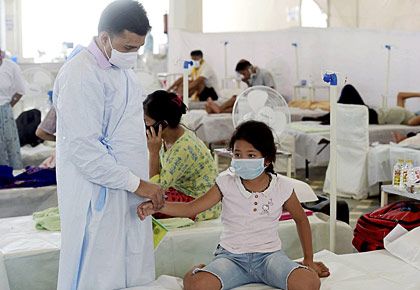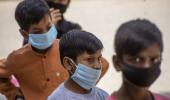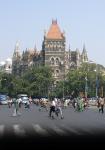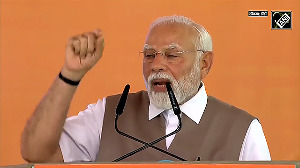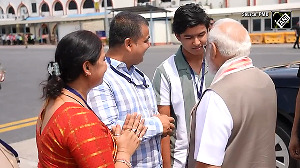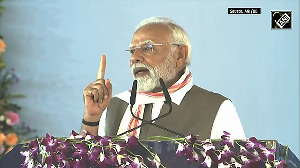'As far as possible, the child should be with his or her family.'
'The next option is foster care. Shelter homes are the last resort.'
Caution: Graphic content. Viewer discretion advised.
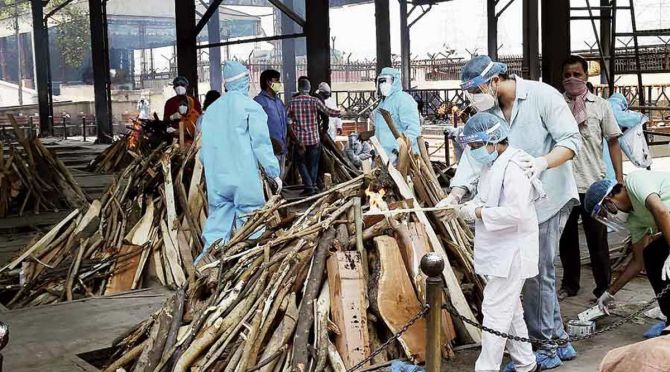
If the first wave of the COVID-19 pandemic was frightening, the second has been devastating with many more succumbing to the disease. While the death of a loved one affects the entire family, it is young children who are the most affected.
One of the greatest tragedies of the coronavirus pandemic is that many children have lost a parent and -- in a situation that is almost impossible to contemplate -- some have lost both.
What future do such children face, especially when they have no family support or their extended family cannot afford to, or will not, look after them?
The National Commission for Protection of Child Rights is collating data about this tragedy from across the country and guiding child welfare committees about how these children must be looked after.
The NCPCR will monitor their progress every month.
Priyank Kanoongo, below who was appointed NCPCR chairperson in 2018, tells Rediff.com's A Ganesh Nadar how the government plans to help COVID orphans.
Do you have data on how many children have lost one parent, and how many have lost both, to COVID?
From April 1, 2020, to June 5, 2021, 26,000 children under the age of 18 have lost one parent and 3,500 have lost both parents.
This number is not restricted to COVID deaths; it includes all children orphaned during this period.
What is the state-wise breakup of children who have lost one or both parents to COVID? Who is caring for them now?
I am sending you a table that gives the state-wise break-up (The table, which is provided at the end of this interview, shows that the three most affected states are Maharashtra with 7,084 orphans, Uttar Pradesh with 3,172 orphans and Rajasthan with 2,482 orphans).
There is a specified procedure on how to look after them. There is a need to protect them and they are looked after by the child welfare committee of that district.
A social investigation takes place where the personal details of the child -- like property, if they have a house -- are tabulated under the Juvenile Act.
Officials talk to their family and friends and give their observations to the child welfare committee, which then prepares a care plan that is recommended to the child, his or her family and especially to the mother. This is uploaded on our Web site.
We follow up on a monthly basis. Some of the children are with their families; others are in shelter homes.
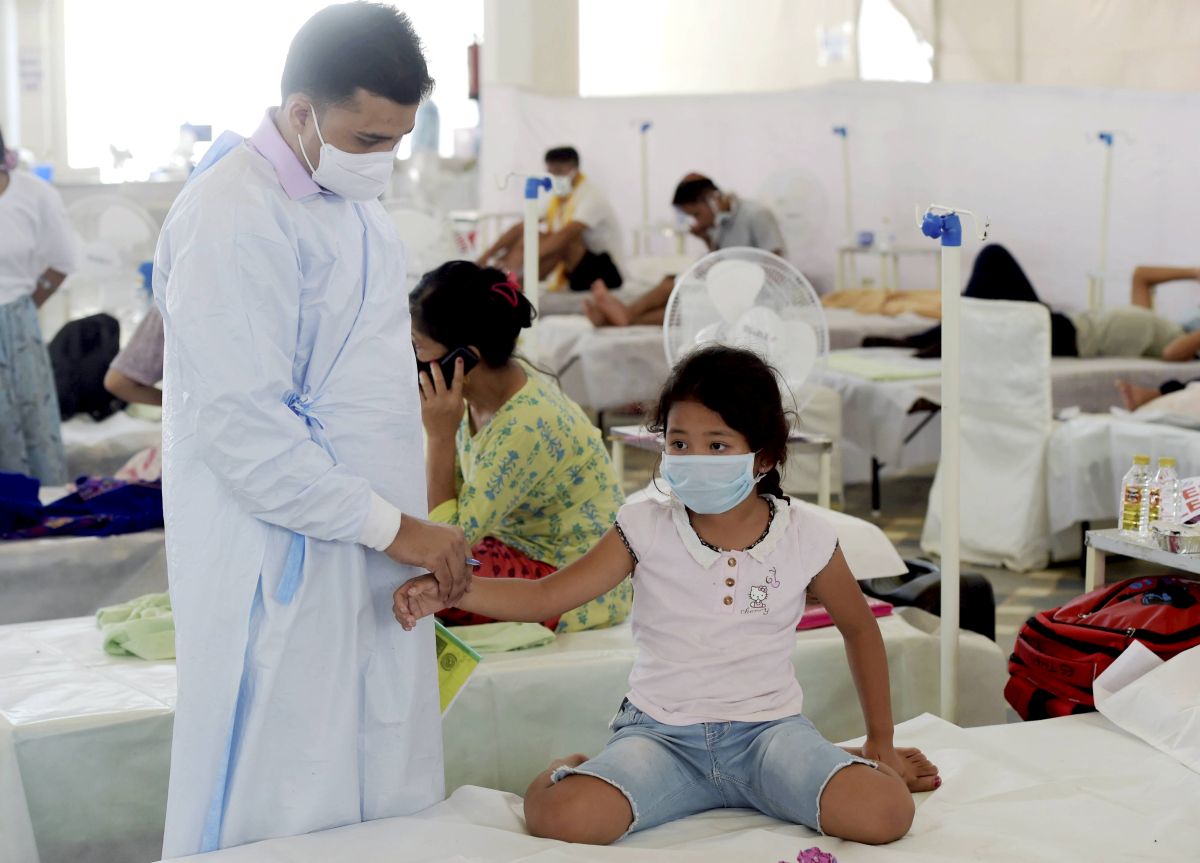
How is the NCPCR providing assistance to these children?
The NCPCR is the monitoring agency. The child welfare committee will look after them and provide immediate relief.
Will those orphans who have lost both parents be shifted to shelter homes if the families they are with cannot or will not look after them?
The decision will be taken by the Child Welfare Committee.
The Juvenile Act says that, as far as possible, the child should be with his or her family. The next option is foster care. Shelter homes are the last resort.
We will ensure that the child is safe. As far as possible, going to a shelter home should not happen to children.
Till what age will the government look after them?
Earlier, for children who were with their family, it was 18 years and for children in shelter homes, it was 21 years.
Now, under the PM CARES Fund, we will look after the children until they are 23 years old.
Is there a separate budget for the care of orphans? Will they be provided financial support for skills training and so on?
There is a child protection scheme under which financial aid or sponsorship will be provided; the central government will provide funds.
After graduation, PM CARES will fund their professional education too.
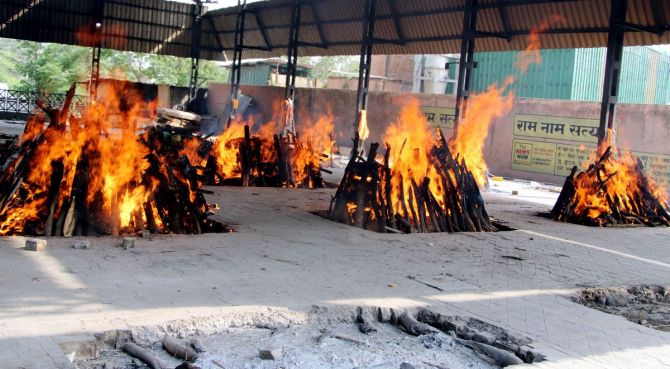
Is there a plan to set up separate homes for these orphans at the state level or will they live in shelter homes already present in different states?
There are already enough shelter homes in the states.
Is UNICEF helping you in this endeavour to look after COVID orphans?
No, UNICEF is not involved. The Juvenile Justice Act says that data about these orphans should not be shared with any NGO.
Are people allowed to adopt COVID orphans? If yes, what is the procedure?
Yes, they can apply on our portal. There is a robust mechanism provided by the Juvenile Justice Act; they should go through that and apply.
After the child welfare committee declares that a child is available for adoption, you can apply. The final approval will come from the central adoption committee.
Have you received complaints about violations of the adoption procedures?
Many complaints have come in. We are issuing orders to stop them. Some states like Delhi and West Bengal are not giving us the information.
What are your plans to help COVID orphans?
We are tracking their rehabilitation. They will be helped by the government.
Their stay, their education, their health, all their needs will be taken care by the government.
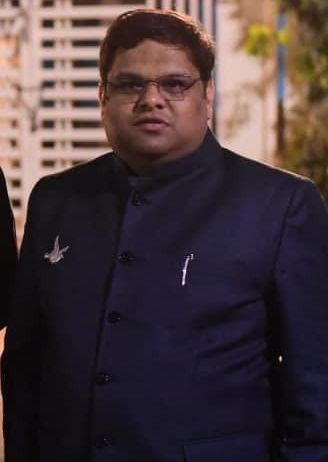
Why don't you want NGOs to look after these children?
We have asked the Supreme Court to issue directions.
NGOs are collecting funds by revealing details of the children, which is against the law.
There is a procedure where the money can go to the child directly. The NGO should not collect money.
Do you feel you have a heavy responsibility looking after young children, particularly girls?
It is our work and our responsibility. We will ensure that every child is protected.
Feature Presentation: Aslam Hunani/Rediff.com
